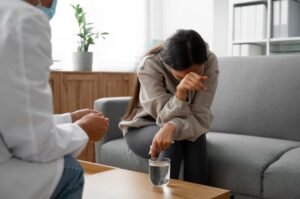The Role of Exercise in Recovery: Building a Healthy Lifestyle
In the journey to recovery, creating a balanced and healthy lifestyle is crucial for long-term success. One key component of this lifestyle is regular exercise. Incorporating physical activity into your recovery plan can provide numerous benefits, from improving mental health to enhancing overall well-being. Here’s a look at how exercise plays a vital role in recovery and how to build a healthy lifestyle through physical activity.
1. The Benefits of Exercise in Recovery
Exercise offers a wide range of benefits that are particularly valuable during the recovery process:
- Improved Mental Health: Physical activity stimulates the release of endorphins, which can help reduce symptoms of depression and anxiety, common challenges during recovery.
- Enhanced Mood: Regular exercise can lead to increased self-esteem and a more positive outlook on life, which is essential for maintaining motivation in recovery.
- Better Sleep: Engaging in physical activity can improve sleep quality, helping you establish a more regular sleep pattern, which is crucial for overall health.
2. Exercise as a Tool for Managing Stress
Stress management is a critical aspect of recovery. Reconnecting with your body and nature through physical exercise can play a significant role in this:
- Natural Stress Reliever: Physical activity helps to reduce cortisol levels (the stress hormone) and can act as a natural stress reliever.
- Healthy Coping Mechanism: Exercise provides a constructive outlet for dealing with stress and negative emotions, reducing the likelihood of turning to unhealthy coping mechanisms.
3. Building a Structured Exercise Routine
Creating a structured exercise routine can help you stay consistent and motivated:
- Set Realistic Goals: Start with achievable goals based on your current fitness level and gradually increase intensity as you progress.
- Find Activities You Enjoy: Choose exercises that you find enjoyable, whether it’s walking, swimming, yoga, or strength training. Enjoyable activities are more likely to become a lasting part of your routine.
- Establish a Schedule: Incorporate exercise into your daily or weekly routine to create a sense of structure and commitment.
4. Integrating Exercise into Your Recovery Plan
Incorporating exercise into your recovery plan can enhance your overall treatment strategy:
- Consult with Professionals: Work with your healthcare provider or a fitness professional to develop an exercise plan that complements your recovery goals and physical capabilities.
- Combine with Other Therapies: Exercise can be combined with other therapeutic approaches, such as counseling and support groups, to create a comprehensive recovery plan.
5. Overcoming Common Barriers to Exercise
It’s common to face obstacles when starting a new exercise routine. Here’s how to address some common barriers:
- Lack of Motivation: Set small, manageable goals and track your progress to stay motivated. Joining a fitness class or exercise group can also provide additional support and accountability.
- Time Constraints: Incorporate shorter workouts into your daily routine or break exercise into smaller, more manageable sessions throughout the day.
- Physical Limitations: If you have physical limitations or health concerns, choose low-impact exercises and consult with a healthcare professional to ensure your exercise plan is safe and appropriate.
6. The Importance of Consistency
Consistency is key to reaping the benefits of exercise:
- Build Habits: Establish a regular exercise routine to create healthy habits and integrate physical activity into your lifestyle.
- Stay Flexible: Be adaptable and willing to adjust your routine as needed, but maintain a commitment to staying active.
7. Celebrating Your Progress
Acknowledge and celebrate your achievements along the way:
- Track Milestones: Keep track of your progress and celebrate reaching milestones, whether they are related to fitness, mood improvement, or other recovery goals.
- Reward Yourself: Use exercise as a reward for achieving personal goals or overcoming challenges, reinforcing positive behaviors and attitudes.
Exercise plays a pivotal role in building a healthy lifestyle during recovery. By improving mental health, managing stress, and establishing a structured routine, physical activity contributes significantly to overall well-being and long-term success in recovery. Incorporate exercise into your recovery plan, address common barriers, and stay consistent to enjoy the full range of benefits it offers.
Author
-

President, CEO & Founder at Northbound Treatment Network
Paul Alexander is the CEO, President & Founder of Northbound Treatment Network in Newport Beach, California. He believes wholeheartedly in transformational leadership, organizational health and effective, fully integrated substance use disorder and mental health treatment. With over 27 years of experience in behavioral healthcare, Paul has extensive knowledge of “in vivo” treatment modalities, clinical development, operations, strategy, marketing and financial planning. He has been widely recognized for his development of collegiate-based residential treatment programs for students in recovery and authored a research study at The University of California confirming this modality’s effectiveness.
Paul’s comprehensive professional experience, willingness to innovate, and emphasis on organizational health are vital factors in Northbound’s continued success. Paul received his Certified Addiction Treatment Specialist training at Saddleback College in Mission Viejo, CA, and was awarded Outstanding Alumni Service Award in 2002. Paul holds a Bachelor of Arts degree in Criminology, Law and Society, Summa Cum Laude, from University of California, Irvine, and a Juris Doctorate degree from Loyola Law School of Los Angeles. Paul currently serves on The National Association of Addiction Treatment Providers (NAATP) board. In addition, he serves on The Family Recovery Foundation board and The CarePossible board in Orange County; both organizations are committed to raising funds for family recovery and treatment for former military personnel. Paul is in recovery himself and lives in Orange County with his wife Silvana and his two young sons, Noah and Dean.







